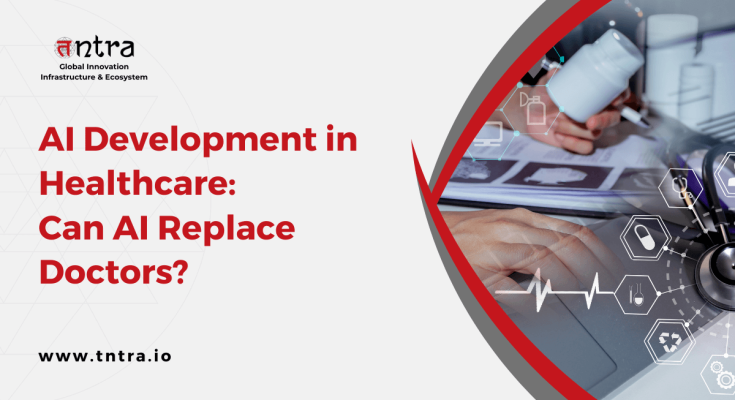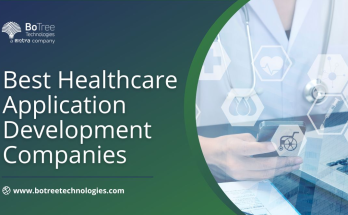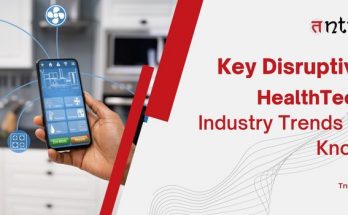AI is transforming healthcare in amazing ways! Imagine that robots greet you in your mother tongue and with smart technology that can assess your health. Symptom analysis is already being aided by AI tools, such as guiding patients through a series of questions to guide their next step of care. Diseases are detectable more precisely by using advanced imaging techniques, where sometimes biopsy can be omitted. The wearable keeps the patient engaged in their care. Overall, AI has more than a good chance to transform patient care, while it brings much-sought benefits in outcomes. Continue reading to learn more.
Siemens Healthineers is ranked highly by the FDA; by last autumn, 40 of its devices had received approval. According to the organization, it actually possesses a portfolio of over eighty AI-based solutions. Numerous of them deal with imaging, including the AI-Rad Companion, which automates the post-processing of image data sets using AI algorithms. Its goal is to streamline radiologists’ workflow and enable them to handle large caseloads by automating routine tasks.
Some of the modules it offers are for brain MR, which measures brain volume and divides the brain into segments; prostate MR, which calculates PSA density and estimates prostate volume; and a module for outlining organs in CT scans, including lymph nodes. New modules for various imaging modalities and body locations are constantly being added to AI-Rad Companion.
Similarly, Google is utilizing AI in healthcare in a number of ways. Its massive language model, PaLM, has been modified for the medical field and is now known as Med-PaLM 2. The chatbot is being developed by the business to compose responses, summarize papers, and give health care personnel insights. It has already demonstrated its ability to answer questions from medical license examinations.
From next-generation DNA sequencing, DeepVariant is a neural network that recognises individual genetic variants. The company is also creating deep learning models that can analyze electronic health records and forecast diagnoses for specific patients. Research also demonstrates that its Artificial Intelligence in healthcare can diagnose difficult-to-spot acute kidney damage 48 hours earlier than existing processes.
(Source: VKTR)
AI in Healthcare: A Trajectory of Growth
The healthcare industry’s worldwide artificial intelligence market is projected to reach USD 173.55 billion by 2029, growing at a compound annual growth rate (CAGR) of 40.2% from its 2022 valuation of USD 16.3 billion. The market for artificial intelligence in healthcare is expanding and becoming more widely accepted at a very notable rate.
According to estimates, the US market for generative AI in healthcare was valued at $1.07 billion in 2022. Then, in the course of two years, this rose by more than four-fifths (82%) to $1.95 billion.
A third of Americans (33%) believed that AI healthcare applications would worsen healthcare results, compared to nearly two in five (38%) who felt that it would improve. A little more than 25% thought it would have no impact at all.
How AI is Transforming Healthcare
It might not be long before healthcare uses integrated AI forms, where a robot uses natural language processing to greet you in your native tongue for your yearly checkup, takes your vital signs, and then uses machine learning algorithms to analyze collected vital signs to recommend to the doctor which patient to prioritize and what investigations should be ordered.
Here’s Artificial Intelligence in healthcare is changing the industry:
- Symptom analysis
Intelligent symptom checkers are already widely used by medical institutions and providers. Patients are prompted with a series of questions regarding their symptoms by this machine learning system, which then uses their responses to determine the best course of action for seeking medical attention. For example, organizations are employing Buoy Health’s web-based, AI-powered health assistant to triage patients exhibiting COVID-19 symptoms. Based on the most recent recommendations and information from the Centres for Disease Control and Prevention (CDC), it provides tailored data. - Disease detection
Imaging technologies in healthcare software development can help doctors diagnose patients more quickly. Enlitic, a San Francisco-based business, uses medical data analysis to create deep learning tools for radiologists to identify patients more accurately. Clinicians may now define and comprehend cancer aggressiveness more precisely thanks to these techniques. These instruments have the potential to occasionally replace the requirement for tissue samples with “virtual biopsies,” which would help medical professionals determine the phenotypic and genetic characteristics of tumors. It has also been demonstrated that these imaging technologies draw conclusions more accurately than physicians. According to a 2017 research that was published in JAMA, out of 32 deep learning algorithms, 7 were better than a panel of 11 pathologists at diagnosing lymph node metastases in breast cancer patients. - Better patient engagement
Smartwatches and activity trackers by a healthcare app development company are examples of wearables and customized medical technology that can assist patients and physicians in keeping an eye on their health. They can also aid in the study of population health variables by gathering and evaluating personal data. Additionally helpful in encouraging patients to follow treatment suggestions are these devices. The degree to which patients follow their treatment regimens may influence the result. The care plan may not work if people don’t follow instructions, modify their behavior, or take medications as directed. Patients may be more engaged and involved in their care if AI is able to personalize their care. AI systems can be used to deliver content meant to elicit action or alert patients. - Precision medicine
Precision medicine is defined as “an emerging approach for disease treatment and prevention that takes into account individual variability in genes, environment, and lifestyle for each person” by the National Institutes of Health in the United States. AI healthcare software solutions have the potential to further improve precision medicine by helping to more precisely apply preventative and treatment options based on each patient’s distinct features. The speed at which AI and machine learning can analyze data and produce useful results is, as was previously said, one of their major advantages. According to Dixie B. Baker, PhD, FHIMSS, senior partner of Martin, Blanck and Associates, this entails “mining and analyzing large quantities of genetic, clinical, social, lifestyle, and preference data across broad, heterogeneous populations” in the context of precision medicine.
Final Thoughts
Without a question, AI will have an increasing impact on our healthcare system. As things stand, artificial intelligence is promoting advancements in drug discovery, diagnostic procedures, and overall health care management. However, based on the technologies now under development, it is certain that artificial intelligence (AI) health products by any software product engineering company will soon play a significant role in daily health care operations, which will benefit both patients and medical institutions. The ultimate goal of healthcare professionals will always be to improve patient care and get the greatest results.


